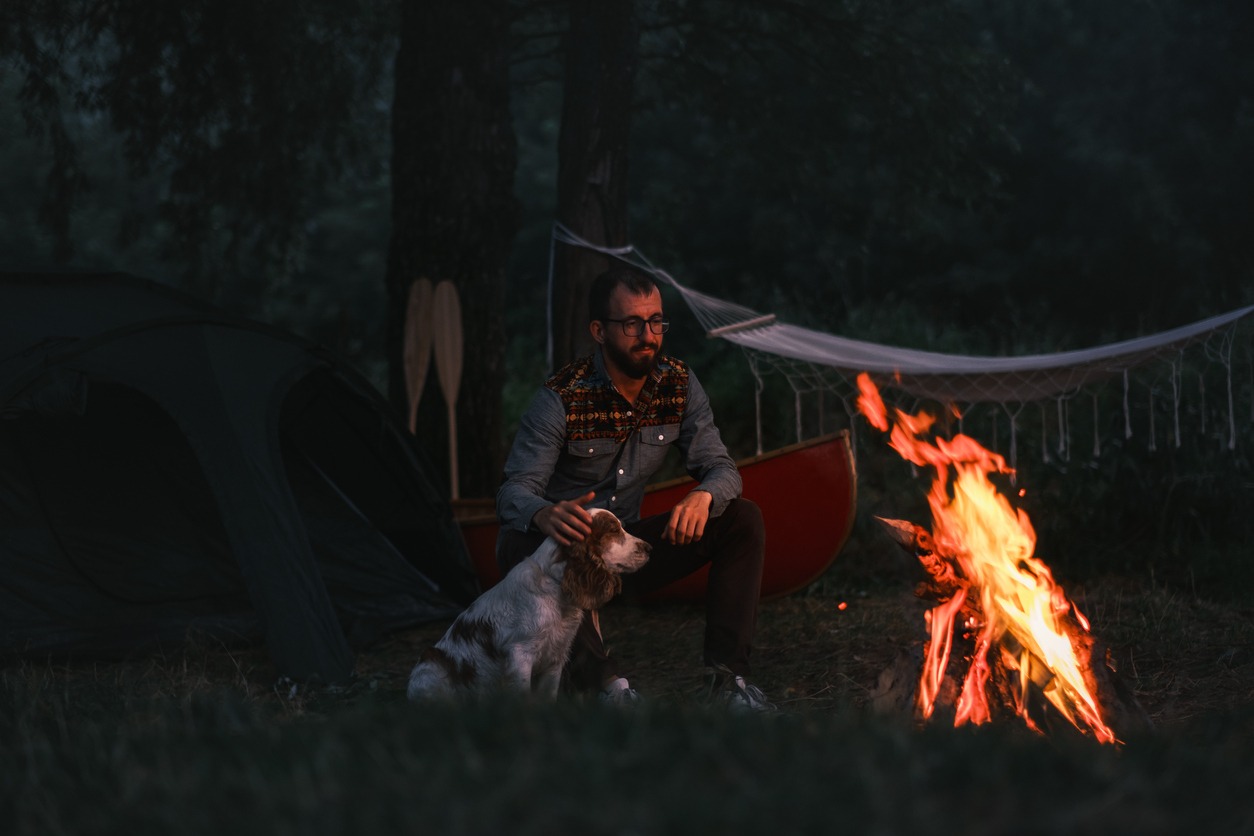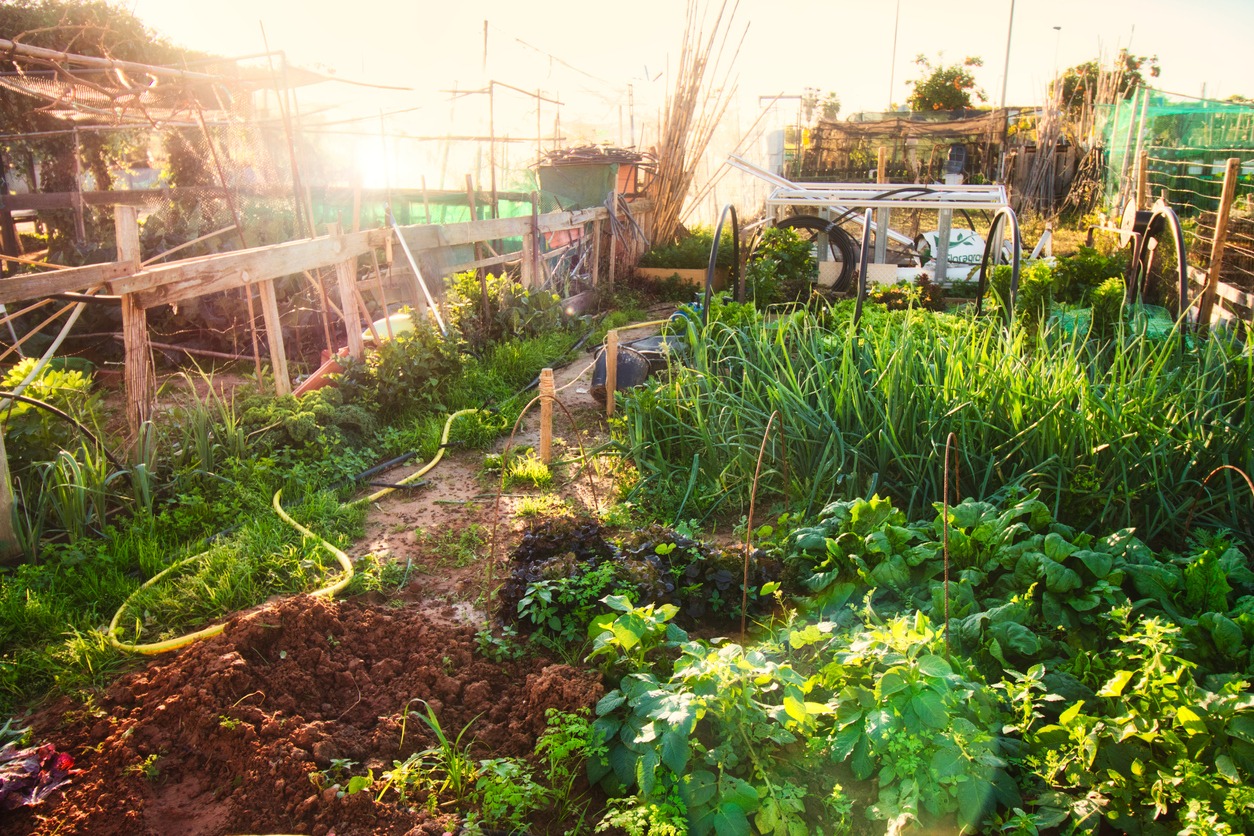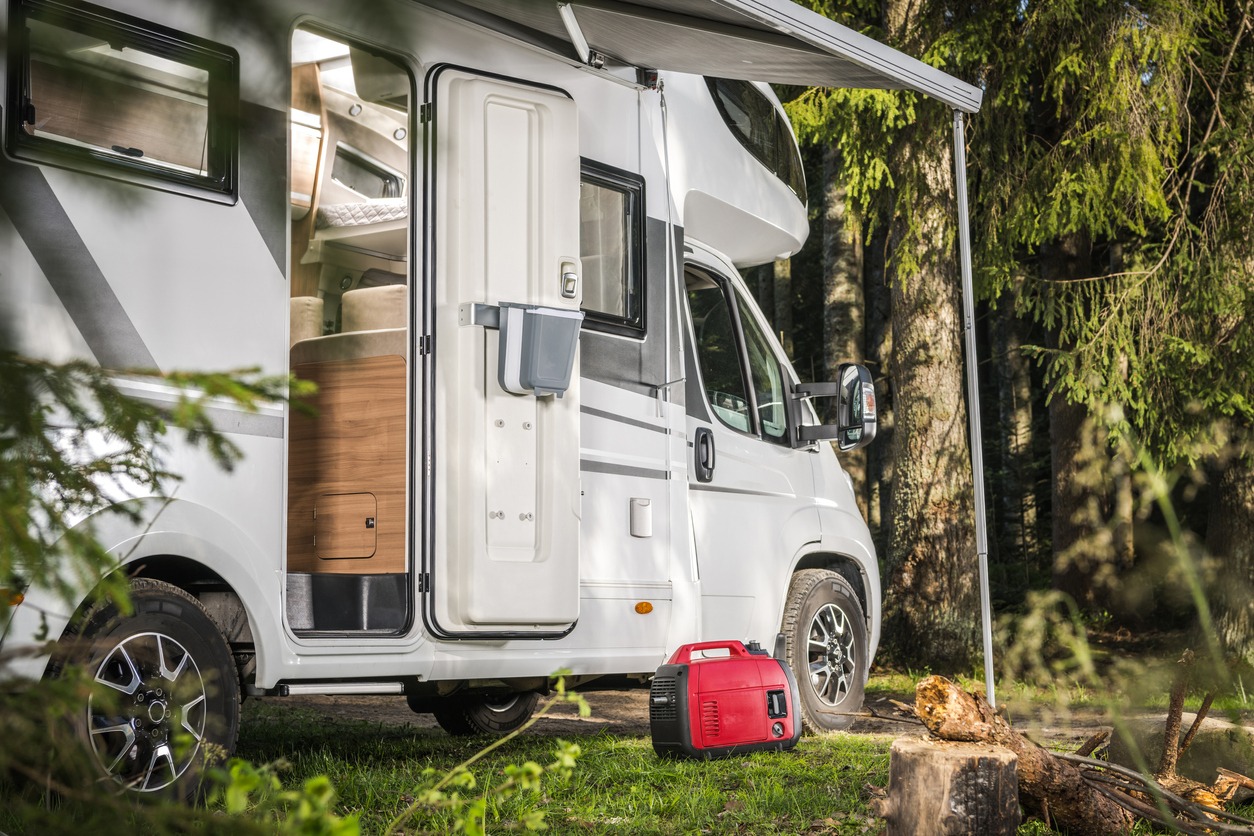More and more people are choosing to live their life on their terms rather than participating in the rat race. Living off the grid can be a challenge even in states where it is not discouraged. There are a lot of things that people tend to take for granted that are electrically powered that either one must replace with manual options, or one must learn to do without.
There are other factors involved in off-grid living along with electricity, such as heating, water, and sanitation. Many of these methods for off-grid living are not common knowledge but some many books and guides have been developed by those who have already been through the move from standard to off-grid.
How Does Living Off the Grid Work?
Living off-grid simply means not relying on services like power, water, and sewer that most of us take for granted. This can mean various things to different people. For some, it might entail using solar or wind power to generate electricity; for others, it might entail collecting rainwater for drinking and using gray water for irrigation; and for still others, it might entail living in a remote area without any access to public utilities.
How-To Manuals for Living Off the Grid
It is possible to find a lot of information about living off the grid on the internet, but there is nothing quite like being able to flip through the pages of a book to get started on a new adventure.
1. Back to Basics: A Complete Guide to Traditional Skills (Back to Basics Guides)
There is no need to look any further than this exceptionally helpful and full-color guide if you want to learn fundamental living skills the kind that was used by our ancestors and adapt them for a better life in the twenty-first century. Back to Basics has been a source of motivation and direction for a large number of readers. They have used it to transport themselves to a time before power saws and fast food restaurants, and they have used it to rediscover the pleasures and challenges of living a lifestyle that is healthier, greener, and more self-sufficient.
Back to Basics contains hundreds of projects, step-by-step sequences, photographs, charts, and illustrations that will assist you in doing things such as dying your wool with plant pigments, grafting trees, raising chickens, crafting a hutch table with hand tools, and making delicacies such as blueberry peach jam and cheddar cheese.
This book has recently been revised and updated. Instructions on how to construct a log cabin or an adobe brick homestead can be found for those who are particularly ambitious. Even if you live in a city apartment, you will find that your imagination is sparked by reading this book because it is more than just a collection of useful tips and there is no reason why you shouldn’t be able to follow your dreams.
2. Nick Rosen’s How to Live Off the Grid
Nick Rosen is likely the most knowledgeable person in the UK when it comes to living off the grid. Nick is a documentary filmmaker, journalist, and activist who has won multiple awards for his work. Because he has traveled extensively, his writing is informed by experiences from locations other than his home in the UK.
Although some of the information in his book is specific to the United Kingdom, the concepts and procedures described in this manual are easily adaptable to other environments, including the climate of the United States. Nick has also launched a website based on his book’s material but takes a more international perspective.
This book infuses a globally accepted concept with the pragmatic sensibility that is so characteristic of the British. You come away with the impression that all of this might be feasible because it demonstrates a variety of different ways in which people can take steps toward living off the grid.
The first part of the book takes the reader on a trip around the world, where they meet a variety of people and learn the motivations behind why they choose to live off the grid. It is very interesting to learn about the many different approaches they took to accomplish their objective. The second section provides some helpful introductory information on important topics such as generating power and providing shelter, lodging, and water.
3. Off-Grid Living: How to Start Your Off-Grid Journey by Mike Holsworth
Mike Holsworth is the author of an impressive number of books. The sun’s energy has been the primary topic of his writing for some time. However, he departs from the specifics at this point to examine, on a more fundamental level, the reasons why people choose to live off the grid.
This book, in contrast to some of the others, does not have a strong personal voice that makes it simple to become invested in the journey of another individual with similar interests. Mike Holsworth, the author of this book, starts on the very first page by presenting the convincing argument that living off the grid is better for the environment. It is impossible not to feel compelled to act when one considers the findings of the Organization for Economic Co-operation and Development (OECD), which state that poor health and diseases that stem from polluted air, water, and environmental sources are expected to steadily increase up to the year 2050.
When thinking about what it means to live off the grid, how to get ready for it, and how far away from the grid is appropriate for you, this theme is developed and developed further throughout the book.
4. David Black’s book, Living Off the Grid: A Simple Guide to Building and Keeping a Self-Reliant Supply of Energy, Water, Shelter, and More (2008)
In our day-to-day lives, we can exercise control over the resources and services that we rely on. Solar, wind, and hydroelectric power generation are just some of the alternative sources of energy that can be used in place of the public utility grid to supply electricity and energy.
Design choices can have a significant impact on energy consumption, and the use of bio-diesel and other alternative fuels can make it easier to kick the oil habit. Dave Black discusses various options for eco-optimizing your home and way of life to achieve greater autonomy, financial savings, and a more integrated way of living.
Living Off the Grid is a guide that can assist anyone in regaining command of their life and the way they choose to live it. It is useful not only for rural self-sufficiency enthusiasts but also for city dwellers who have only a passing interest in the size of their carbon footprint.
5. The Forgotten Skills of Self-Sufficiency Used by the Mormon Pioneers
There are a variety of circumstances in which the pioneers survived without the benefit of electricity, and there is no reason why modern people cannot follow their example if that is what they choose to do. Utilize this helpful guide to acquire a foundational understanding of self-reliance.
Few experiences can match the gastronomic and spiritual fulfillment that comes from consuming food that has come directly from one’s garden. Even on the coldest winter day, Utah author Caleb Warnock’s new treasure-packed tome, “The Forgotten Skills of Self-Sufficiency used by the Mormon Pioneers,” demonstrates how to enjoy delicacies such as winter lettuce, spinach, and carrots grown in your garden.
At just under 150 pages, Warnock’s delightful new how-to guide instead prioritizes quality over quantity, with a focus on assisting anyone, anywhere to get started on their path to greater self-sufficiency, regardless of where they live or what level of skill, or lack thereof, they may begin with. This is accomplished by focusing on helping anyone, anywhere to get started on their path to greater self-sufficiency.
Living off the grid is all about being independent and leading the life you want. Making the shift should ultimately be about finding yourself, building a solid family, and developing a connection with nature. The books you read are going to be the best resource for living off the grid. Because there is such a wide variety of choices, everyone will undoubtedly find something that meets their requirements.



